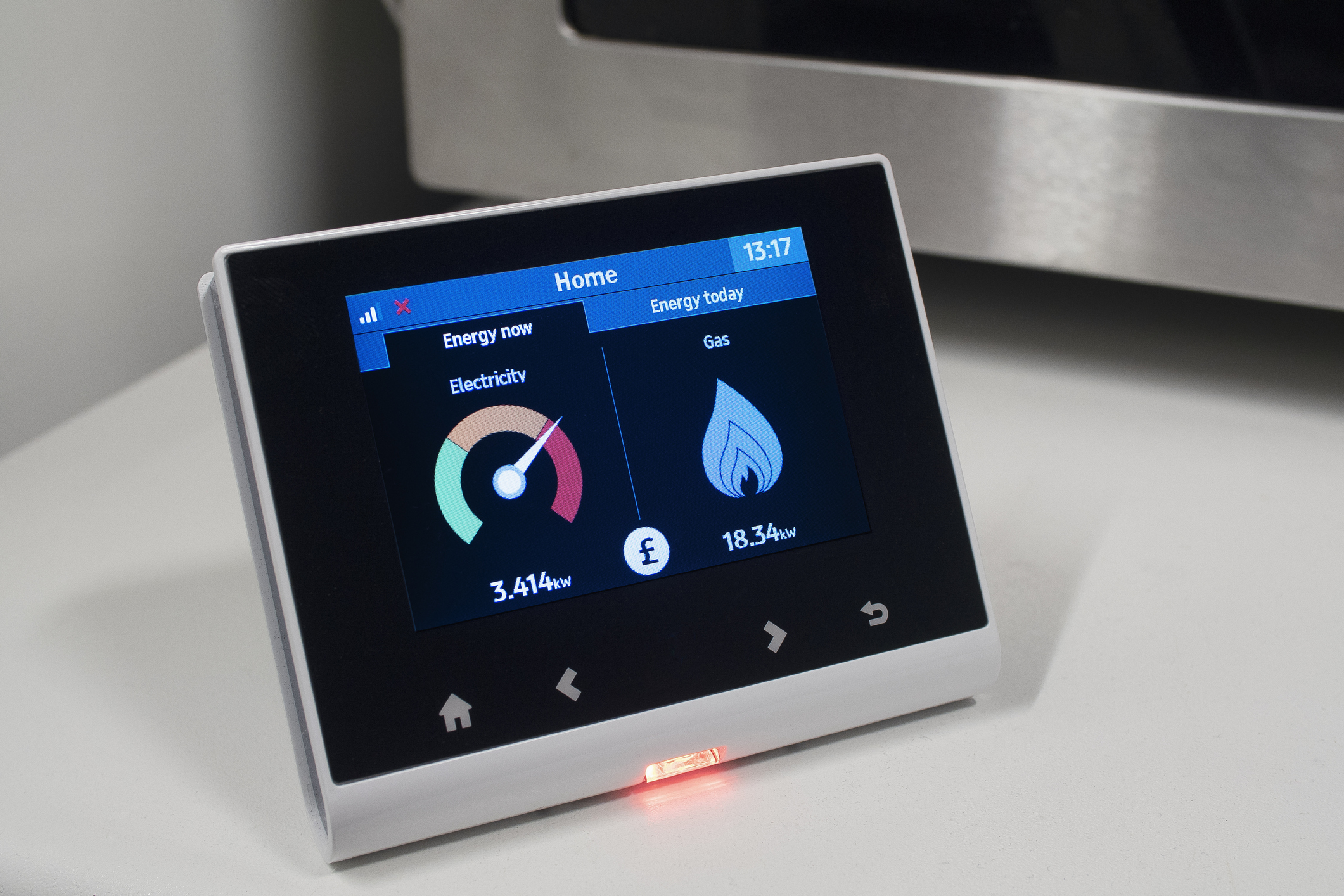Why you shouldn’t rush to fix your energy tariff
Fixed-tariff energy deals are becoming more tempting, but not all households can benefit, says Ruth Jackson-Kirby.


Get the latest financial news, insights and expert analysis from our award-winning MoneyWeek team, to help you understand what really matters when it comes to your finances.
You are now subscribed
Your newsletter sign-up was successful
Want to add more newsletters?

Twice daily
MoneyWeek
Get the latest financial news, insights and expert analysis from our award-winning MoneyWeek team, to help you understand what really matters when it comes to your finances.

Four times a week
Look After My Bills
Sign up to our free money-saving newsletter, filled with the latest news and expert advice to help you find the best tips and deals for managing your bills. Start saving today!
Switching to a better energy deal hasn’t really been an option ever since energy prices began to soar last autumn. The advice has been to remain on your provider’s standard tariff, since it is protected by the price cap set by regulator Ofgem.
However, there are some new fixed-tariff energy deals on the market, while the current level of the cap will go up in October (it’s reset every six months). Earlier this month, Ofgem warned that the new cap could be 42% higher, which would take the average annual energy bill to £2,800. As a result, “fixed deals are starting to look more tempting,” says George Nixon in The Times.
There are 13 fixed tariffs on the market that work out at less than £2,800 for the average household. The cheapest, from Eon, would cost around £2,600 a year, while Ovo is offering two deals that fix your bills for two years. They would cost £2,700 and £2,750 a year on average, below what the energy price cap is expected to be in October. The deals will certainly look attractive if household bills soar and fixing now would at least give you back some control. But don’t rush in, says Nixon. “You will be giving up four months of cheaper energy under the current price cap, currently £1,971 for an average family.”
MoneyWeek
Subscribe to MoneyWeek today and get your first six magazine issues absolutely FREE

Sign up to Money Morning
Don't miss the latest investment and personal finances news, market analysis, plus money-saving tips with our free twice-daily newsletter
Don't miss the latest investment and personal finances news, market analysis, plus money-saving tips with our free twice-daily newsletter
Weighing up the value of certainty
What’s more, Ofgem is considering a shift to reviewing the price cap every quarter, which could affect how quickly prices rise. Experts predict this would mean the watchdog would raise the cap in smaller increments, which could also affect the savings you could make if you fixed later. The Times estimates the average household could save as little as £66 a year if they move onto the current cheapest fix now.
“The price cap could change up to eight times over a two-year fixed deal, so it’s very hard to predict whether you will be better off staying on a standard variable tariff or fixing,” Justina Miltienyte from uSwitch tells The Times. “It’s a case of how much you value certainty and what you can afford to pay.”
So, how do you decide when a fixed deal could be a good idea? The current prediction for the October price-cap rise means “on average you’ll pay 35% more over the next year than you do now”, says MoneySavingExpert’s Martin Lewis. So “if you’re offered a year’s fix at no more than 35% above your current price-capped tariff, or 40% more if you very strongly value budgeting certainty, it’s worth considering”. There are several fixed deals that meet this criterion if you are an existing customer: EDF, Eon, SSE, Ovo and British Gas all have one-year fixed offers for existing customers that are less than 32% above the current price cap.
Ovo Energy also has a one-year fixed deal that is open to anyone, but this works out at 38% more than the current price cap. Using Lewis’ rule of thumb, that means “it’s only for those who really want certainty about price, or are desperate to leave their existing provider”.
Get the latest financial news, insights and expert analysis from our award-winning MoneyWeek team, to help you understand what really matters when it comes to your finances.

Ruth Jackson-Kirby is a freelance personal finance journalist with 17 years’ experience, writing about everything from savings accounts and credit cards to pensions, property and pet insurance.
-
 Should you buy an active ETF?
Should you buy an active ETF?ETFs are often mischaracterised as passive products, but they can be a convenient way to add active management to your portfolio
-
 Power up your pension before 5 April – easy ways to save before the tax year end
Power up your pension before 5 April – easy ways to save before the tax year endWith the end of the tax year looming, pension savers currently have a window to review and maximise what’s going into their retirement funds – we look at how
-
 Should you switch to a fixed energy tariff in 2026?
Should you switch to a fixed energy tariff in 2026?As energy prices remain volatile and far above pre-2022 levels, is now the time to look for a fixed energy tariff? We look at the latest gas and electricity deals
-
 Rent prices continue to rise but demand slows as cost of living pressures bite
Rent prices continue to rise but demand slows as cost of living pressures biteNews The latest data from Zoopla shows rental growth is expected to slow to 5% as demand decreases
-
 The best credit cards with 0% on purchases
The best credit cards with 0% on purchasesAdvice 0% credit cards are a great way to spread the cost of big purchases - we flag the best deals available now.
-
 Competition watchdog warns drivers still overcharged on fuel prices
Competition watchdog warns drivers still overcharged on fuel pricesAdvice The competition watchdog has revealed that motorists are still paying too much for fuel, a year after its initial investigation. How can you save on fuel costs?
-
 Wood-burning stove vs central heating ‒ which is cheaper?
Wood-burning stove vs central heating ‒ which is cheaper?Advice After energy costs increased again, we compare wood-burning stove vs central heating to find out which is cheaper for your home
-
 Is it cheaper to leave the heating on low all day?
Is it cheaper to leave the heating on low all day?Advice The weather is getting colder and energy bills are rising, but is it really cheaper to leave the heating on low all day or should you only turn it on when you need it?
-
 How much does it cost to run an electric oven?
How much does it cost to run an electric oven?Advice We explain how much making a jacket potato, casserole or pizza in the oven costs you.
-
 What you need to think about before dipping into your investments
What you need to think about before dipping into your investmentsAdvice With the costs of living affecting everyone right now, it’s understandable that you may want to dip into your investments. But before you do, here’s what to think about when taking money out of your investment portfolio.